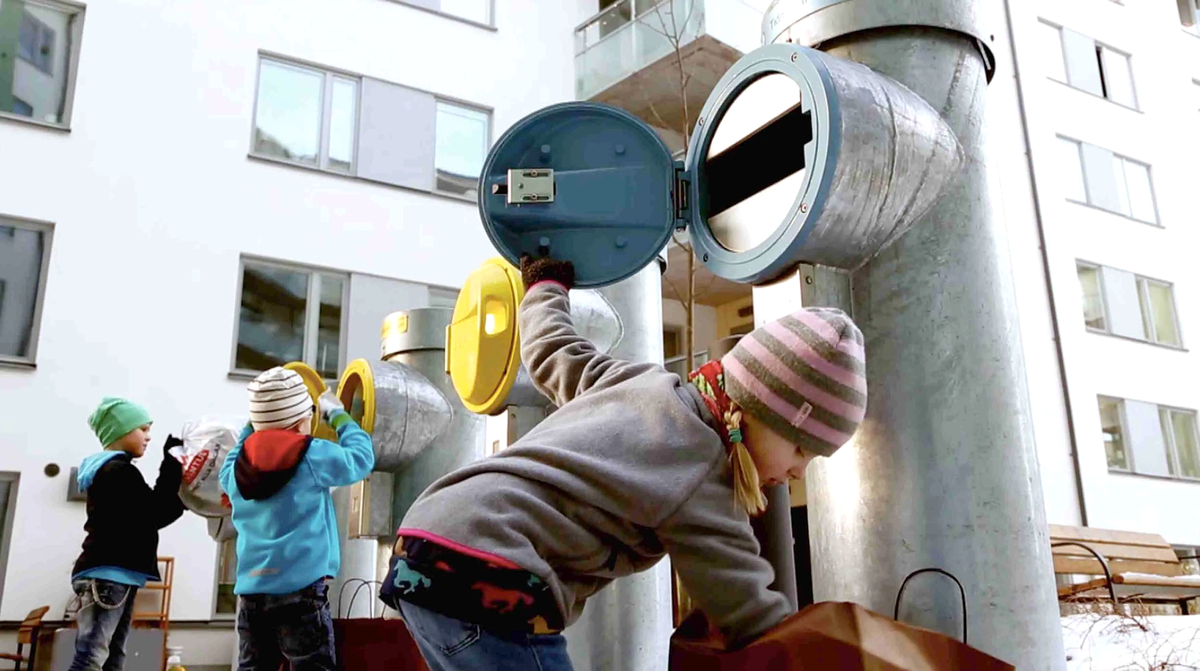Sweden is leading the way in the global transition to carbon neutrality, with ambitious plans to eliminate the use of fossil fuels by 2045. This remarkable journey began decades ago and was fueled by a global oil crisis, which forced the country to rethink its energy strategy.
The 1970s oil crisis, a result of Sweden’s heavy reliance on oil, served as a pivotal moment. The shortage of oil and soaring prices led to the implementation of oil rationing, similar to food rations. This crisis threatened the economic gains of the previous ‘golden period’, prompting Swedish authorities to take decisive action.
A Transformative Oil Crisis
Sweden’s response to the crisis was twofold. Firstly, they turned to nuclear power to reduce their dependence on fossil fuels. Secondly, they invested significantly in central heating infrastructure, constructing large heating plants to supply heat to clusters of households and industrial parks through insulated piping and underground networks.
This shift came at a high cost, but the Swedish government remained committed to their new strategy. Their perseverance paid off, as today, an impressive 97% of Sweden’s heating energy originates from biofuels and waste-to-energy incineration.
Additionally, Sweden successfully decoupled economic growth from electricity consumption. As a result, between 1995 and 2019, Sweden’s GDP per capita increased by nearly 50% while electricity consumption per capita decreased year after year, thanks to efficient national electricity transmission systems.
|
|
| A map of Stockholm, Sweden, indicating the locations of the main heat plants and the supermarkets they supply with heating energy. Source: Elsevier |
Decarbonizing the Swedish Economy
Sweden has discovered a formula to grow its economy while protecting its climate and environment. The country is committed to becoming one of the first fossil fuel-free nations, and renewable energy is central to this transition.
In 2023, approximately 67.8% of Sweden’s electricity generation came from renewable sources, including wind, hydro, nuclear, and biomass, according to the International Energy Agency. This success is partly due to Sweden’s natural advantage, as the country is 70% forested.
However, the Swedish government has also played a crucial role in this transformation. They were one of the first countries to implement a carbon tax, which is now among the highest internationally. This tax incentivized people and businesses to shift from fossil fuels to renewable energy sources, accelerating the expansion of offshore and onshore wind farms and innovative solar solutions.
As a result, Sweden’s CO2 emissions per capita are five times lower than the European average. Since 1990, they have reduced their net greenhouse gas emissions by 80%, compared to the European Union’s average of 30%.
|
|
| Swedish children learn about waste sorting and recycling in Stockholm, the capital city. Photo: City of Stockholm |
In addition to its energy sector transformation, Sweden has also prioritized waste management and recycling to maintain its environmental commitments. According to Ndisi, Sweden has not only encouraged recycling but also fostered a cultural norm of reducing waste and utilizing natural resources at all levels of society.
Sharing Knowledge and Experience with Vietnam
Sweden is eager to share its experience and technology with Vietnam to support the country in creating sustainable systems that benefit both the environment and economic growth. Events like the Green Economy Forum & Exhibition 2024 (GEFE) provide valuable platforms for businesses and citizens to exchange ideas, learn from each other, and inspire collective action.
The Swedish ambassador believes that Vietnam can achieve a high recycling rate by launching robust recycling initiatives, educational campaigns, and policies that encourage businesses to reduce waste. With Vietnam’s goal of net-zero emissions by 2050, the ambassador emphasizes the importance of transitioning to clean, low-carbon energy systems.
“It’s important not to feel discouraged during times of change,” Ndisi said, acknowledging the challenges Vietnam may face in its energy sector transformation. “Sweden has solutions to help overcome this situation.”
India: The Global Hub for Renewable Energy by 2053
“Like the resilient palm, standing strong against the fiercest of storms and the relentless wind, the relationship between India and the United States will not only endure but thrive and bring prosperity to the globe,” proclaimed US Ambassador Eric Garcetti on Monday.
A Week of Vietnamese Culture in Scandinavia
The vibrant cities of Stockholm and Malmo in Sweden, alongside the charming Copenhagen in Denmark, are set to embark on a cultural journey to Vietnam. From September 4 to 12, these Scandinavian cities will play host to a week-long celebration of Vietnamese culture, as announced by the Ministry of Culture, Sports, and Tourism.
Vietnam News Roundup (Mar 24): Vietnam Defies Global Trends, Remains Popular Among Foreign Investors
Vietnam News Today (Mar 24): Vietnam firmly refutes any claims that go against international law in the East Sea region. The country continues to be an appealing destination for foreign investors. SK Group expresses strong interest in developing solar and wind power projects in Vietnam. The cultural exchange between Vietnam and Japan further strengthens their friendship.
Vietnam’s Green Transformation Holds Massive Potential, According to Experts
By prioritizing infrastructure development, enacting progressive policies, and investing in human capital, Vietnam can build a sustainable future while reaping the diverse economic benefits that come with it. Through strategic planning and decisive action, Vietnam can position itself as a thriving economy in the global arena.
Sweden 500: Celebrating a Year of Excellence!
Sweden has a lot to celebrate this year, as it marks several important milestones. In 2023, we will commemorate 500 years since the historic day when Gustav Vasa was elected as the king on June 6th, 1523. This event marked the beginning of a new era for Sweden, transforming it into a modern nation. Additionally, this year also marks the 50th anniversary of His Majesty King Carl XVI Gustaf’s reign, a significant achievement for the country. These milestones highlight Sweden’s rich history and the progress it has made over the years.











